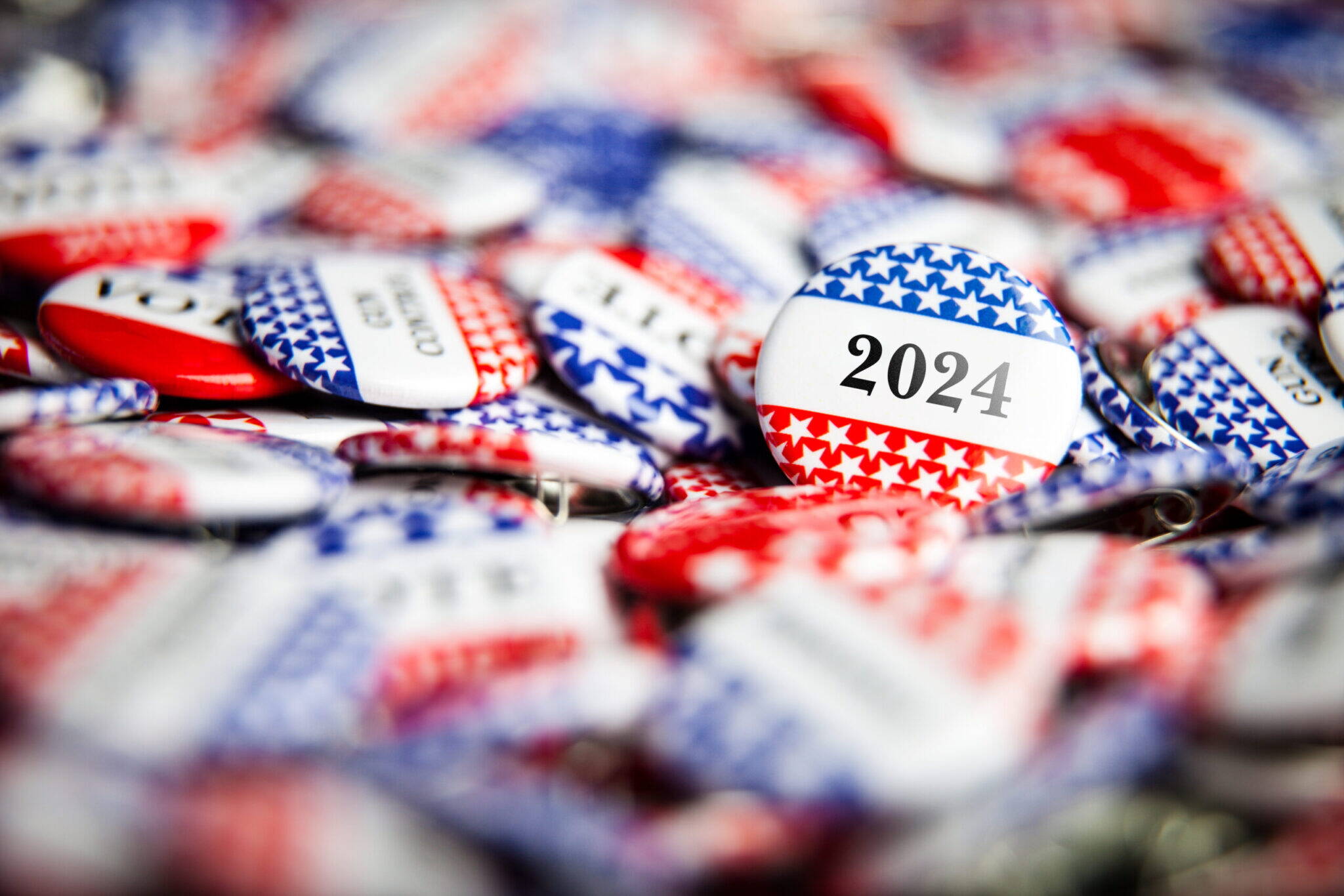On Super Tuesday, March 5, Alaska Republicans will join their counterparts in 14 other states and one territory by casting votes for their preferred nominee for president in this November’s general election.
In Alaska, primary elections for president are run by political parties, not the state, and this is the first Republican preference poll since 2016 — Alaska Republicans canceled the 2020 vote in order to throw unanimous support behind then-incumbent President Donald Trump.
Three candidates are on the ballot this year: Trump, Nikki Haley, and Vivek Ramaswamy, who has ended his campaign and endorsed Trump. Juneau’s polling location is at the Nugget Mall at 8745 Glacier Hwy.
Gov. Mike Dunleavy and Lt. Gov. (and U.S. House candidate) Nancy Dahlstrom have endorsed Trump, as has U.S. House candidate Nick Begich. Sen. Lisa Murkowski, R-Alaska, has said she hopes Haley wins.
Art Hackney, a longtime Alaska campaigner, is chairing the pro-Haley effort in Alaska. He said supporters are calling friends and urging them to call others in support of Haley.
“Right now, we’re just 75 of us making phone calls like crazy and trying to get people to turn out,” he said.
“It’s not likely that we’re going to be victorious, but it’s certainly important that people feel that they can go to the polls and express their support for Nikki,” Hackney said.
Kelly Tshibaka, the Republican who lost to Murkowski in the 2022 general election, is Trump’s campaign chair in Alaska and said the campaign is “sending out texts, emails, endorsements, social media promotions” ahead of Tuesday’s vote.
A Republican candidate needs the support of 1,215 delegates at the national convention in Milwaukee in July to become the party’s nominee.
Through Wednesday, Trump has 122 delegates, Haley 24, and two other candidates (who have since dropped out) have a combined 12 delegates. On Tuesday, 874 delegates are in play, and Alaska accounts for 29 of those, said Republican Party Chair Ann Brown.
Those delegates will be divided according to Tuesday’s vote, she said. If “candidate A” gets 60% of the votes, they’ll get 60% of the delegates.
“The Alaska poll is not a winner-take-all poll,” Brown said.
A candidate needs to get at least 13% of the vote in order to become eligible for any of Alaska’s delegates.
If no candidate at the national convention gets enough support in the first round of voting for a candidate, Alaska’s delegates will become free agents on the second and subsequent rounds of voting.
There is no absentee voting. On Tuesday, 18 polling places will be open across the state from 3 p.m. to 8 p.m. Each polling place is designated for voters of the local state House districts, but out-of-district voting is allowed, Brown said.
Only registered Republicans can participate, but voters may change their registration at the polling site, Brown said, then vote.
Voters should be prepared to present a photo ID, such as an Alaska driver’s license, state-issued ID or military ID.
Preliminary results should be available Tuesday night, Brown said. Polling locations are supposed to report their initial results to party headquarters by 9:30 p.m.
The party will post results on its social media pages, she said.
The Alaska Democratic Party’s presidential primary is April 13, and two candidates are currently on the ballot: Dean Phillips and incumbent President Joe Biden.
• James Brooks is a longtime Alaska reporter, having previously worked at the Anchorage Daily News, Juneau Empire, Kodiak Mirror and Fairbanks Daily News-Miner. This article originally appeared online at alaskabeacon.com. Alaska Beacon, an affiliate of States Newsroom, is an independent, nonpartisan news organization focused on connecting Alaskans to their state government.

